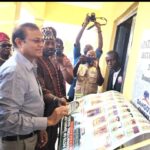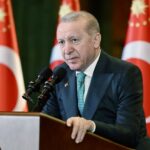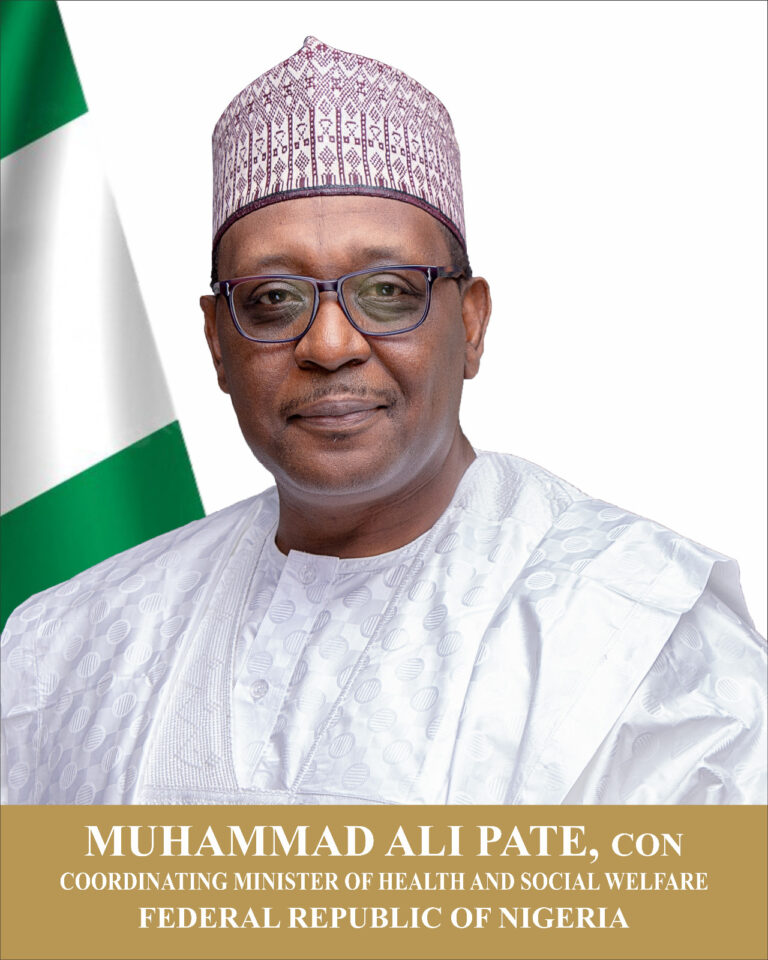By Abujah Racheal
Prof. Muhammad Pate, Coordinating Minister of Health and Social Welfare, has called for the development of health policies that are rooted in the day-to-day realities and voices of Nigerian communities.
Pate, represented by Dr Nse Akpan, the Director of Port Health Services in the ministry said this on Monday in Abuja during the 10th anniversary celebration of the Dr Stella Adadevoh (DRASA) Health Trust.
This approach, he said, stands in contrast to top-down strategies that often fail to address the specific and diverse needs of the population.
”Nigeria’s health sector reforms would only succeed if policies were designed to reflect the needs, values, and experiences of people at the grassroots.
“Policy design in Nigeria will not succeed unless it resonates in the communities, in the marketplace, in the farm, in the school, in churches, in mosques, and in clinics.
“That is where policy truly works. If we sit down here and say we have a lot of failed policies without engaging the grassroots, then the government has not done anything,” he said.
The minister stressed that the voices of youth, women, and marginalised groups must be included in national conversations on public health, adding that inclusion was not only about fairness but also about effectiveness.
“When we talk about inclusion, it is not just about being fair; it is about being effective. Our policies must work for the people where they live and learn,” he added.
Pate commended DRASA Health Trust for its contribution to Nigeria’s public health system, describing the organisation as a model for community-driven action and partnership.
According to him, DRASA has worked closely with the Ministry of Health and Social Welfare to promote hygiene practices, community surveillance, and public awareness on disease prevention.
He said the government would continue to partner with the private sector, civil society, and development partners to strengthen Nigeria’s health security architecture.
“Our health and prosperity as a nation depends on policies that integrate human, animal, and environmental health. That is why we are promoting the One Health approach, because health cannot thrive in isolation,” he said.
Pate reiterated that health security was the collective responsibility of all Nigerians, warning that complacency could undermine the country’s preparedness for future outbreaks.
“Health security is everyone’s business. It wasn’t the business of Adadevoh alone; it is the business of us all.
“We do not know when or where the next outbreak will occur, but if we remain united and proactive, we can prevent crises and protect our people,” he said.
He announced that the government, in collaboration with partners like DRASA, plans to scale up community-based health education and train 50,000 additional health workers to serve in schools and communities across the country.
“This initiative will not only improve hygiene and infection prevention but will also build a new generation of health champions in every community,” he said.
The minister also called on the media, business leaders, and community influencers to support efforts that promote accurate information, local innovation, and accountability in the health sector.
“The task before us is to make our health system inclusive, efficient, and resilient to both present and future threats,” he said.
The News Agency of Nigeria (NAN) reports that in July 2014, when Liberian-American Patrick Sawyer arrived in Lagos showing Ebola symptoms, Dr Adadevoh promptly identified the threat and insisted he be quarantined despite external pressure.
Her decisive action prevented a nationwide outbreak and saved countless lives. Sadly, she contracted the virus and died on Aug. ,19 2014.
Over the past ten years, DRASA has trained thousands of health workers, improved infection prevention and control (IPC) practices, and supported Nigeria’s readiness for disease outbreaks.
Its model aligns with the global “One Health” approach, connecting human, animal, and environmental health.
DRASA’s success proves that empowering local professionals with knowledge and resources can avert health crises before they escalate. Preparedness should not wait for the next outbreak, it must be part of everyday healthcare delivery.
Through its Young Professionals and DRASA Health Ambassadors initiatives, the organisation has inspired a new generation to champion health security, resilience, and responsible behaviour in schools and communities. (NAN)
Edited by Ifeyinwa Okonkwo/Sadiya Hamza












